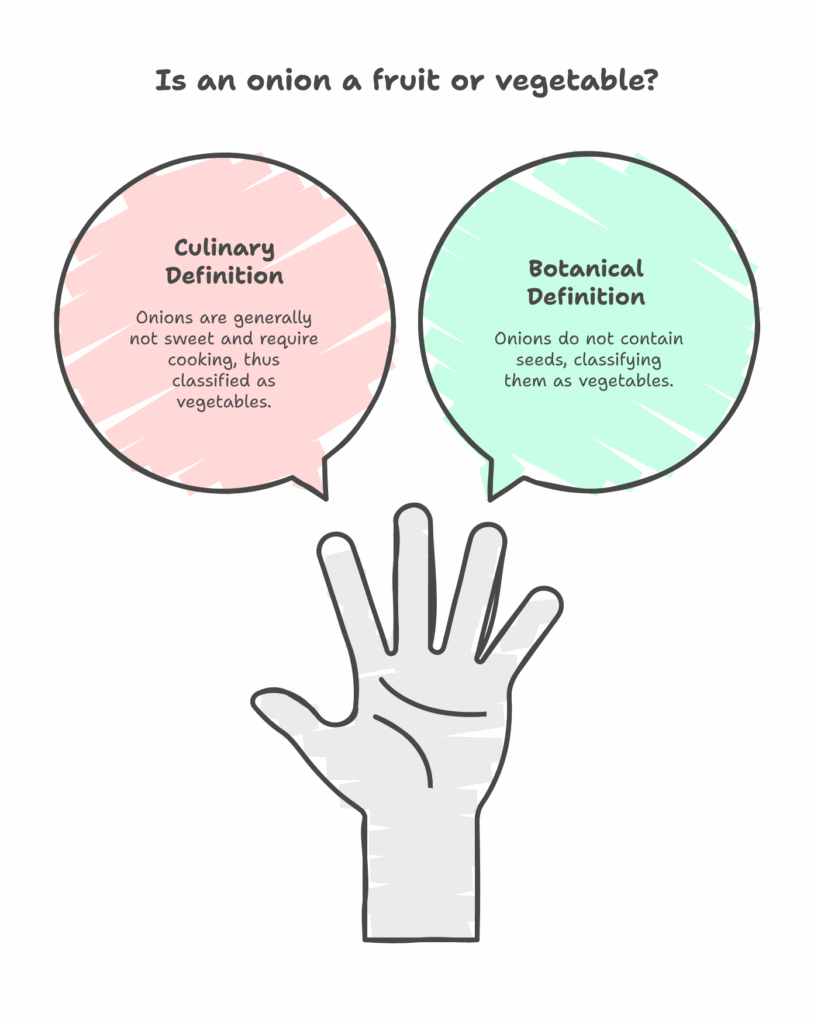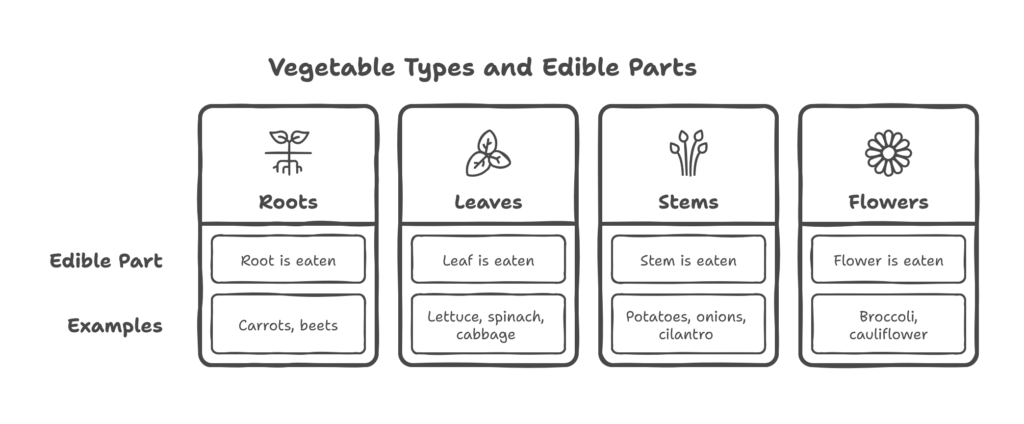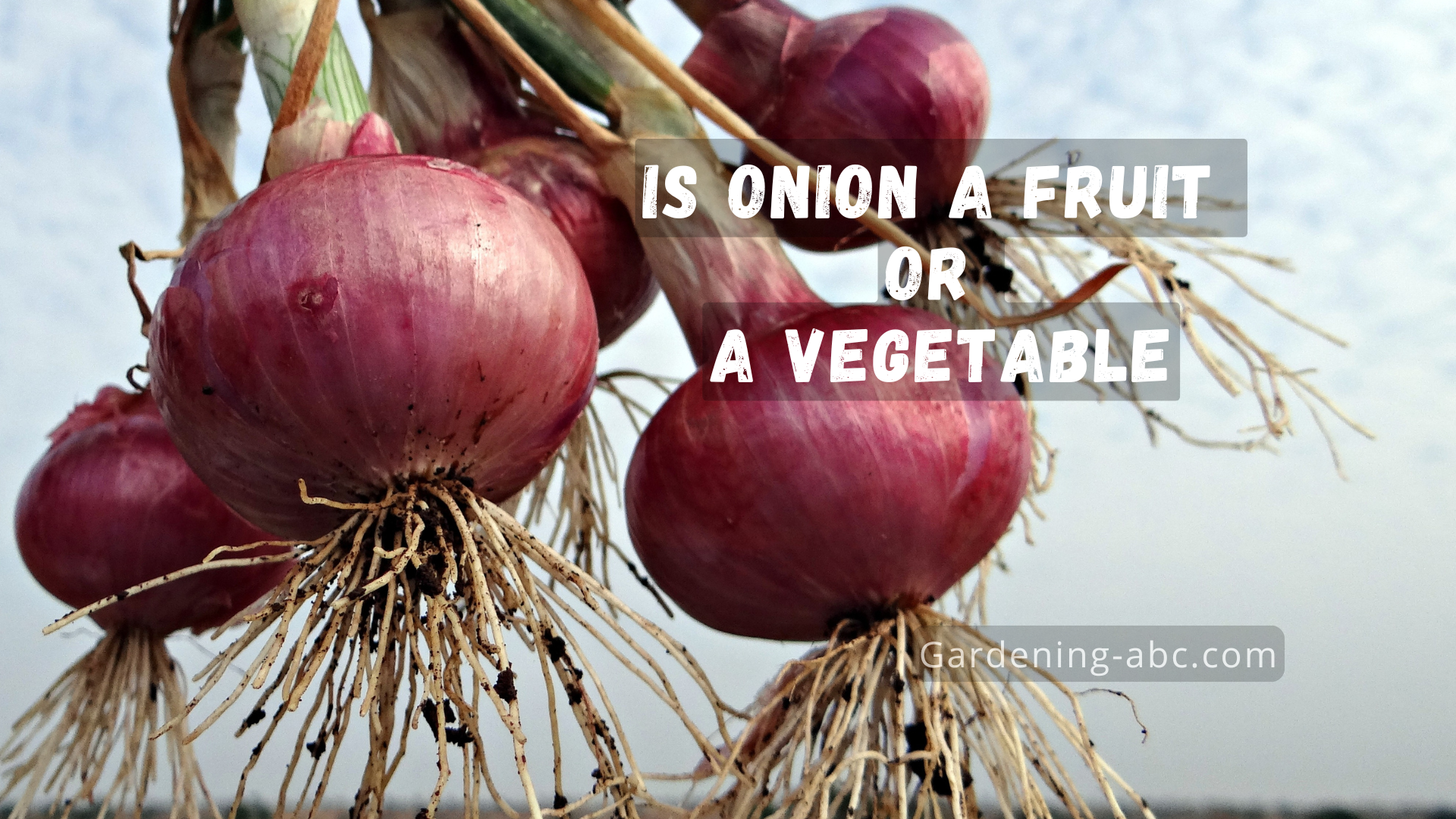We use affiliate links to run our site. When you buy through links on our site, we may earn an affiliate commission, without any added cost to you. Learn more
Onions are one of the most commonly used vegetables. They are eaten on their own, added to a wide variety of foods, and even used in cooking.
However, people often question whether onions are a fruit, a root, or a vegetable. It’s no different from asking whether a carrot is a fruit or a vegetable.
This article will help clear up any confusion you may have about this topic.
First, let’s understand…
Is an Onion a Fruit?
Onion is not a fruit, but it is a vegetable. The most common misconception people have is that onions are fruits. Onions can not be classified as fruits because they do not contain any seeds.
What’s the Difference Between a Fruit and a Vegetable
Usually, in the culinary sense, we use taste to distinguish between a fruit and a vegetable. So things that are generally sweet and you can eat without cooking in termed fruits, and whatever doesn’t fall into that category is called a vegetable.
But botanically, the naming system is much more clearly defined.
In Botany, a fruit is the edible part of a plant that contains the seed, while a vegetable is the edible part of a plant that does not contain the seed. A vegetable can be roots, leaves, or stems.

Onions don’t contain seeds, so they can not be technically called a fruit; it is called a vegetable.
Is a Potato A root or a Vegetable?
different types of vegetables
Based on the above definition of a vegetable, it can be of many types. Vegetables can be classified based on their edible parts, like roots, leaves, stems, flowers, tubers, and bulbs. Here are some of the common examples

Root vegetables are those veggies where we primarily eat the root of the plant. Some common root vegetables include carrots, beets, etc.
Leafy vegetables are those vegetables where we prefer the leafy portion of the plant. Some common examples are lettuce, spinach, cabbage, etc.
The most common type is the stem vegetable. It can also be of various types like tubers (potatoes), bulbs(onions), or the main stem (spinach, cilantro, etc).
We sometimes also eat flowers as vegetables, like broccoli, cauliflower, and other edible flowers.
Onion is a modified stem:
An onion is a modified stem that has adapted to a particular environment. It grows underground as a bulb, with leaves and flowers growing from the top.
The bulb is designed to store food so the plant can survive in a hostile environment and also propagate once the environment becomes more favorable for plant growth.
Different types of modified stems:
Bulbs:
A bulb is a short, thickened, underground stem that contains food reserves. The leaves and flowers grow from the top of the bulb, and the roots grow from the base of the bulb.
Some of the most common bulbs are onions, garlic, and tulips.
Rhizomes:
A rhizome is a horizontal stem that grows underground. It sends out roots from its underside and shoots from its upper side.
Rhizomes are common in plants like ginger, turmeric, bananas, and bamboos.
Tubers:
A tuber is a swollen, underground stem that stores food.
We discussed tubers in detail in this post. Common examples of tubers are potatoes, taro, yams etc.
Corm:
A corm is a short, thickened, underground stem that is covered with scale leaves. Unlike bulbs, they don’t have any concentric rings around them. Corms are common in plants like Crocus and gladiolus.

But Onions have seeds. Don’t they?
Onion bulbs, also called onions, are a vegetable that is harvested from the flowering part of the onion plant. The seeds are developed on the flowers and not in the bulbs.
Onion bulbs do not contain seeds, and they do not grow from the portion of a flowering plant. The bulb is actually the underground part of the onion that stores food.
Onion seeds are developed from the part of the flowers of the onion plant. Onion seeds are small and hard to see, but when they germinate, they grow into new onions.
Can I harvest onions after flowering?
Onions are biennial plants, which means they take two years to grow and flower. In the first year, the onion plant will grow a large bulb at the base of the plant. In the second year, the onion plant will grow a flower stalk from the bulb.
Once the onion flowers, the bulbs will start to rot and will no longer be edible. So if you are planning to eat your onions, harvest them before they mature fully.
On the other hand, if you are planning to harvest onion seeds, you have to wait for them to finish their life span.
Bulbing process in onions:
Onions are a cool-weather crop, and as the weather begins to warm up in the spring, the onion plant starts to form bulbs.

The amount of daylight is absolutely crucial for growing bulbs in onions. But the required amount also varies as per the onion variety.
- Long day onions – Needs 14 to 16 hours of daylight.
- Intermediate day – Needs 12 to 14 hours of daylight
- Short day – This variety only needs 10 to 12 hours of daylight
Initially, the leaves will start to swell and grow in a concentric circle around the base of the plant. This will start the bulbing process. As the onion bulb grows, new leaves will continue to emerge from the center of the bulb.
Are onions good for you?
Onions may not be the first vegetable that comes to mind when you think about health benefits, but new research is revealing that this common kitchen vegetable may have some powerful benefits for your overall health.
Onions are high in antioxidants, which can protect cells from damage and help reduce the risk of cancer.
They also contain anti-inflammatory compounds that can help reduce inflammation in the body and improve overall health.
Additionally, onions contain vitamins A, C, and K, as well as other minerals and vitamins.
Conclusion:
In conclusion, an onion is not a fruit or root but a bulb. It has many nutritional benefits and can be used in many different dishes. They are part of the allium family, which also includes garlic and leeks..
Like the information? Here are 8 more common questions about onions. Don’t forget to check that out.
Don’t forget to share the information with others, too.
Amazon and the Amazon logo are trademarks of Amazon.com, Inc, or its affiliates.

Hi there! My name is Prasenjit and I’m an avid gardener and someone who has grown a passion for growing plants. From my hands-on experience, I have learned what works and what doesn’t. Here I share everything I have learned.
